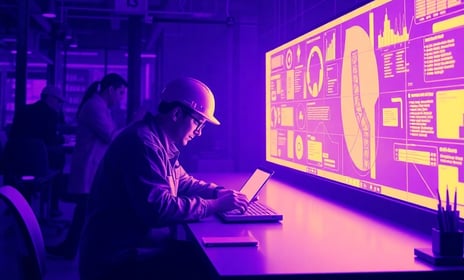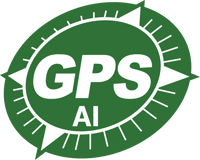The Future of Work: What AI Means for Your Employees
AI isn’t replacing jobs—it’s reshaping them. The real winners will be businesses that empower employees to collaborate with AI, not compete against it. Upskill your teams, redesign roles, and embrace AI as a productivity multiplier. The future of work is here—is your workforce ready to lead it? 🚀
Andrew Cooke
1/31/20254 min read


"Artificial intelligence is not a substitute for human intelligence; it is a tool to amplify human creativity and ingenuity." — Fei-Fei Li, Co-Director of Stanford University's Human-Centered AI Institute.
Introduction
AI isn’t coming—it’s here. And it’s rewriting the rules of work faster than anyone expected. While many fear AI will replace jobs, the reality is far more complex. AI is shaking up industries, automating repetitive tasks, and even performing high-level analysis. But it’s also creating new opportunities, pushing companies to rethink roles, and forcing employees to develop skills AI can’t replicate—yet.
The challenge for businesses isn’t whether to embrace AI—it’s how to do it in a way that empowers employees rather than displacing them. The companies that get this right will unlock new levels of productivity, innovation, and competitive advantage. Those that don’t? They risk falling behind.
So, what does AI really mean for the future of work? Let’s unpack the reality—beyond the hype, the fears, and the easy headlines.
AI Isn’t Killing Jobs—It’s Creating a 2X Workforce
There’s a common belief that AI will wipe out millions of jobs. But here’s the counterintuitive truth: AI isn’t just about replacing workers—it’s about amplifying them.
A PwC report found that companies that integrate AI effectively see productivity gains of 20% to 30%—not because they’re cutting headcount, but because they’re enhancing the workforce. (PwC AI Predictions)
Imagine your best employees with an army of digital assistants—AI agents that handle research, draft reports, optimize workflows, and even respond to customer inquiries. According to PwC’s 2025 AI Business Predictions, AI agents could double the effective workforce in knowledge-driven businesses.
But here’s where it gets interesting:
AI Doesn’t Work Without People
AI agents aren’t independent. They need human oversight, creativity, and judgment to work effectively. The most successful employees won’t be those who compete with AI—they’ll be the ones who know how to direct, refine, and collaborate with AI tools to get better results.
🔹 Think of AI as a power tool. In the hands of a skilled worker, it amplifies their abilities. In the wrong hands, it’s just another piece of tech that never gets used properly.
The companies that train employees to work with AI—rather than fear it—will dominate their industries.
The Jobs You Thought Were Safe? Think Again
Most people assume low-skill, repetitive jobs are most at risk from automation. But AI is actually targeting high-skill, knowledge-based roles faster than expected.
🔹 A study from the American Economic Journal found that industrial robots reduced employment by 3.7% for men and 1.6% for women, particularly in white-collar professions. (Source)
Why? Because AI excels at structured decision-making, pattern recognition, and predictive analysis—tasks that dominate finance, law, healthcare, and consulting.
Here’s what’s happening:
AI is automating investment analysis, making finance professionals rethink their value.
Legal AI tools can draft contracts, scan case law, and predict outcomes better than junior lawyers.
AI in healthcare can diagnose diseases with higher accuracy than some doctors.
This doesn’t mean these jobs will disappear. It means professionals must evolve their skills to focus on what AI can’t do—like human judgment, emotional intelligence, ethical decision-making, and creative problem-solving.
📌 The real risk isn’t AI replacing workers—it’s workers who don’t adapt to AI.
The AI Gap: Why Younger Workers Are More Nervous
Surprisingly, Gen Z is more sceptical about AI than older generations. A report by monday.com found that 42% of Gen Z employees fear AI will eliminate the parts of their job they actually enjoy. (News.com.au)
Why the anxiety?
They grew up with tech and know how quickly automation can disrupt industries.
They value control and autonomy, and AI feels like it’s making key decisions for them.
They worry AI will push them into more mundane, oversight-based roles rather than creative, strategic ones.
📌 The takeaway? Companies need to actively involve younger employees in AI adoption, showing them how AI can make their jobs more interesting—not just more efficient.
How Businesses Can Turn AI Fear into AI Readiness
AI isn’t a threat—it’s a force multiplier. But companies need a clear strategy to integrate AI without alienating employees.
For Business Leaders:
✅ Upskill your teams – Invest in AI literacy and training programs. Make sure employees see AI as an opportunity, not a competitor.
✅ Redesign roles, not remove them – AI should augment human jobs, not eliminate them. Reframe AI’s role as "co-pilot," not replacement.
✅ Make AI adoption collaborative – Involve employees in AI initiatives so they feel empowered, not sidelined.
✅ Address ethical concerns head-on – Transparency is key. Employees need to trust that AI won’t be misused to cut jobs unfairly.
For Employees:
✅ Learn AI Basics – You don’t need to be a programmer, but understanding AI’s strengths and limitations will make you more valuable.
✅ Develop uniquely human skills – Creativity, leadership, emotional intelligence, and adaptability are AI-proof.
✅ Experiment with AI Tools – The best way to stay ahead is to start using AI in your daily work—before it becomes mandatory.
✅ Advocate for AI Training in Your Company – If your company isn’t preparing you for AI, take initiative and push for resources.
📌 The employees who take AI seriously now will be the ones leading AI-driven businesses tomorrow.
Reflective Questions: How Ready Are You?
How is AI already changing your industry?
Is your company training employees to work with AI, or are people left figuring it out alone?
Are you actively using AI tools in your daily work? If not, why not?
What skills do you have that AI can’t replace? How can you double down on them?
The AI Revolution is Here—Are You Ready?
AI isn’t just another workplace trend—it’s a fundamental shift in how we work. Businesses that embrace AI responsibly and strategically will thrive. Those that resist will struggle to compete.
So, what’s your next move?
🔹 If you’re a business leader, start integrating AI in a way that empowers—not replaces—your workforce.
🔹 If you’re an employee, start building AI fluency and positioning yourself as someone who can lead in the AI era.
🔹 If you’re in HR or L&D, push for AI training initiatives before the workforce falls behind.
🚀 The future of work isn’t about AI taking over. It’s about how well you adapt. The companies and employees that take action now will be the AI-driven success stories of tomorrow.
So, are you ready to lead in an AI-powered world?
GROWTH & PROFIT SOLUTIONS - AI
Empowering businesses with tailored AI & business consulting services.
ANDREW COOKE - CONTACT DETAILS
CONTACT US
andrew.cooke@business-gps.com.au
+61 (0)401 842 673
© 2025. All rights reserved.
